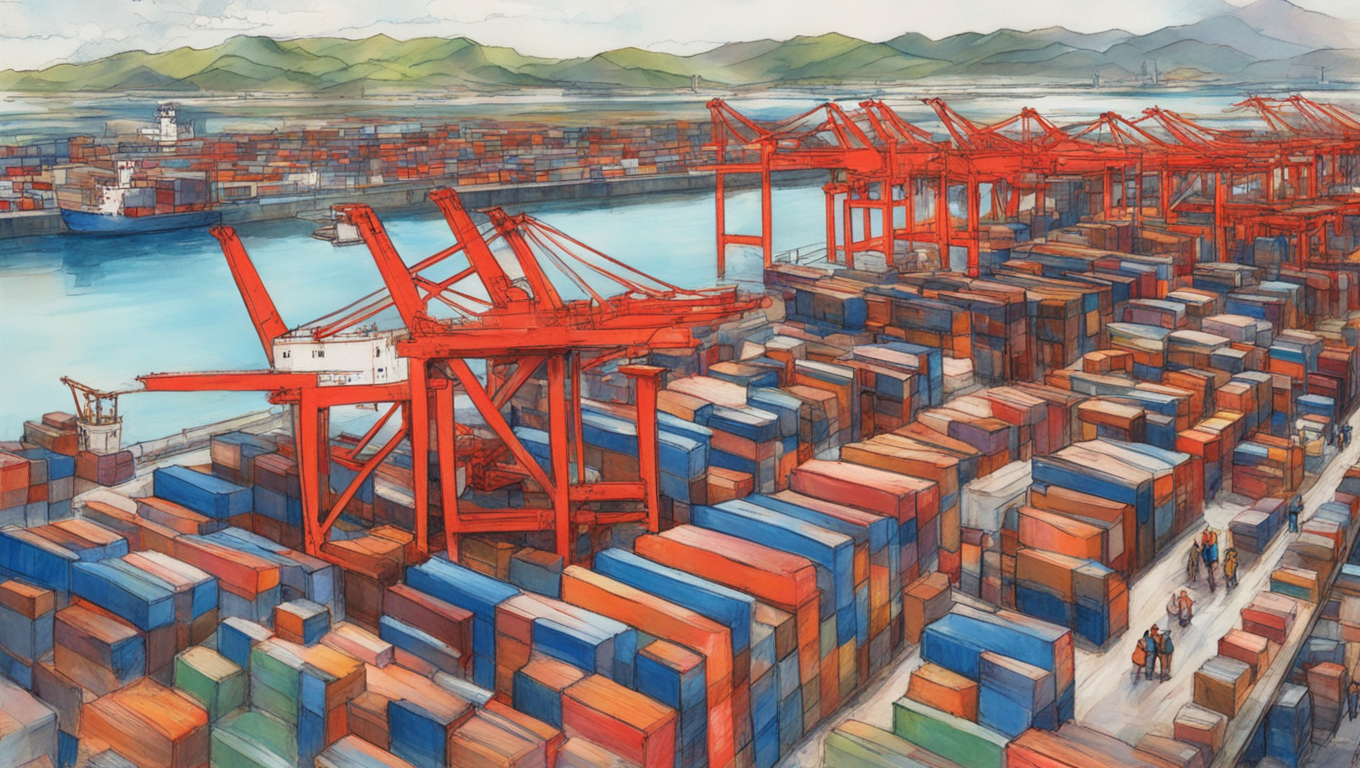Taiwan’s export sector experienced a significant surge in January 2024, with exports increasing by 18.1% compared to the previous year. This surge can be attributed to the growing demand for artificial intelligence (AI) products, as well as favorable timing due to the Lunar New Year holiday.
The Ministry of Finance revealed that exports of information and communications technology (ICT) products more than doubled to reach US$9.42 billion. This was mainly driven by the strong demand for AI servers, graphics cards, and memory storage devices. Beatrice Tsai, the Department of Statistics Director-General, emphasized the extraordinary growth in AI demand and its promising future. Tsai specifically highlighted Taiwan Semiconductor Manufacturing Co (TSMC), the world’s leading contract chipmaker, as a major player driving this growth.
TSMC, with clients including Nvidia Corp, Advanced Micro Devices Inc, Apple Inc, and other technology giants, is expected to achieve record-high revenue this quarter despite being the low season. In fact, TSMC recorded the highest-ever revenue for the month of January in the company’s history, amounting to NT$215.7 billion (US$6.88 billion). This figure indicates a 22.4% increase from December and a 7.9% rise compared to the same month the previous year.
While exports of electronics increased by 7.5% year-on-year, totaling US$13.67 billion, chip shipments saw a growth of 7.1% to US$12.63 billion. The ministry’s data also revealed a significant growth in exports to the United States, which surged by 56.6% to US$8.4 billion. Consequently, the US surpassed ASEAN markets to become the second-largest export destination. Tsai attributed this growth to the aggressive development and expansion of AI capacity by US tech firms.
Furthermore, exports to China rebounded after 17 months of decline, increasing by 17.2% to reach US$12.24 billion. Tsai emphasized the stabilization of global inflation, monetary tightening, and geopolitical tensions, indicating a favorable environment for cross-border trade.
However, the export of non-tech products did not perform as well. Auto and bike parts experienced a 26.6% decline, while plastic products saw a modest growth of 7.5%. Despite these challenges, Tsai expressed optimism about the steady recovery of the technology products sector, which began in the fourth quarter of the previous year.
On the import front, there was a rapid recovery of 19%, amounting to US$34.7 billion. EVA Airways Corp and China Airlines Ltd contributed to this recovery by purchasing new aircraft. Although imports of capital equipment fell by 4.6%, imports of transportation tools surged by 3.5 times, and ICT equipment nearly doubled. These increases offset the 49.9% drop in imports of semiconductor equipment.
Overall, the trade data for January 2024 revealed that Taiwan had a trade surplus of US$2.49 billion, which reflects a 6.5% increase compared to the previous year. This positive outcome further demonstrates the strength of Taiwan’s export sector and its ability to leverage the growing demand for AI products.
As we embark on a new year, the future looks promising for Taiwan’s export industry, driven by the continued demand for AI products and the strong presence of TSMC in the global market. With Taiwan’s reputation as a key player in the tech industry, it is well-positioned to capitalize on emerging trends and maintain its status as a major exporter of innovative products.





Use the share button below if you liked it.